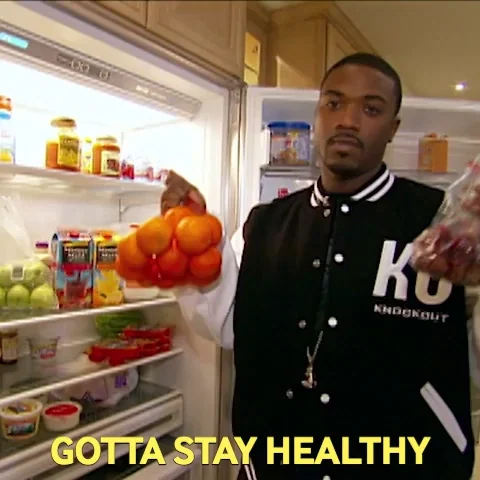
This logo isn't an ad or affiliate link. It's an organization that shares in our mission, and empowered the authors to share their insights in Byte form.
Rumie vets Bytes for compliance with our
Standards.
The organization is responsible for the completeness and reliability of the content.
Learn more
about how Rumie works with partners.
So, you’re passionate about eating well and would like to help others feel healthier through food?

When I finished college, I wasn’t 100% sure what to do next, but as a lifelong foodie with a passion for health, human nutrition felt like a natural fit.
No matter your goals, a degree in nutrition gives you skills and knowledge that open doors to various careers in food and health or even further study.
Is this degree for you?
Why Study Human Nutrition?
Whether you’re helping others to improve their health through good nutrition, driving new research discoveries, shaping policies for a healthier nation, or helping athletes eat to perform at their best — nutrition is an incredibly rewarding field.
Plus, many courses include placement years that give you valuable hands-on experience, making you more attractive to future employers.
Sounds awesome, right?

Here's What You'll Learn!
Nutrition is way more than just diet. It’s about understanding how food affects the body, health, and even communities. Courses vary, but here’s a peek at some of the cool things you’ll dive into:

Diet and Health
Learn how what we eat affects our health and helps prevent issues like heart disease, cancer, and obesity. You’ll see how food plays a big role in keeping us healthy.

Public Health
Discover ways to improve people’s health through projects and policies, like programs that help communities eat better or prevent illnesses.

Research and Laboratory Skills
You’ll practice research techniques and lab skills to study the impact of food on health and learn how to evaluate scientific studies.

Nutritional Science
Get into the science behind how our bodies use nutrients, from vitamins to proteins, and learn how to analyze diets with research and data skills.

Food Safety
Learn how to protect people by ensuring food safety from farm to table, focusing on foodborne hazards and maintaining quality control.

Communication and People Skills
Learn to talk about nutrition in a way people understand and build the skills to work with clients or teams to help them improve their health through food.
Each of these areas gives you tools to work in a field that makes a real difference!
Career Paths That You Could Follow
The career paths in nutrition are endless!

Here are just a few examples of where it could take you:
Nutritionist roles: Work as a nutritionist, public health nutritionist, or sports nutritionist in private practices or government organizations.
Nutritional educator: Teach children or adults about healthy eating and nutrition.
Nutrition journalism: Write articles or create content about nutrition trends, research, and tips for a variety of audiences.
Postgraduate studies: Continue your education with advanced degrees in nutrition, dietetics, or food science.
Research opportunities: Dive into research positions in universities or organizations like charities, contributing to groundbreaking discoveries in nutrition.
Policy and regulation: Get involved in shaping food policy, legislation, and regulations around product consumption and marketing.
Whatever you choose, a nutrition degree provides you with the knowledge, skills, and hands-on experience to take your next steps in this exciting field!
How to Prepare For Studying Nutrition
Preparing for a nutrition program involves understanding your goals, gaining practical experience, and staying informed about the field.

Here are some steps to help you get ready:
Define your goals: Determine what you want from courses and research study options across institutions, considering outcomes, costs, location, and next steps.
Gain experience: Volunteer or intern to see if nutrition is the right fit for you, helping you understand the pros and cons of different roles.
Explore your passion: Study the functions of vitamins and minerals to gauge your interest in nutrition.
Stay updated: Follow reputable nutritionists on social media to keep up with trends and learn professional communication.
Did you know?
Nutrition can be a competitive field, so early work experience helps you stand out from the crowd. It strengthens your resume, applies classroom knowledge, and boosts job market success. Consider approaching hospitals, public health organizations, nonprofits, food companies, research institutes, or government programs for internships or volunteering opportunities.
How To Succeed When Studying Nutrition
Here are some tips to help you do well in your studies:
Get organized and keep focused: Stay on top of your notes, assignments, and deadlines. Use planners or apps to manage tasks, and remember to prevent burning out.
Engage in class: Joining discussions and asking questions makes it easier to understand what you’re learning.
Stay curious: Always ask questions and explore new topics that interest you as Nutrition is always changing.
Seize opportunities: Get involved in nutrition clubs or organizations to meet new people, learn more, and develop your skills while having fun.
Practice what you learn: Eating a balanced diet helps keep you healthy and helps your studying.

It's Quiz Time!

Sophia is interested in science, particularly biology and chemistry. She’s passionate about how diet affects health and volunteers to promote healthy eating. She’s considering a career focused on improving well-being.

Ethan loves cooking and experimenting with recipes. He’s curious about how food impacts the body but focuses more on flavor and culinary creativity. His dream is to open his own restaurant.
Quiz
Who you think should consider studying human nutrition?
Sophia’s interest in the health impacts of diet and science makes her a better fit for studying human nutrition than Ethan, who is more focused on culinary arts.
Take Action

I decided not to become a nutritionist, but my degree led me to a career in food science and working with charities to reduce food poverty and food waste. The possibilities are endless!
If you’re curious about exploring the field of nutrition, here are some great ways to get started:
This Byte has been authored by
Martha Skinner
Project Manager and Learning Designer
PhD